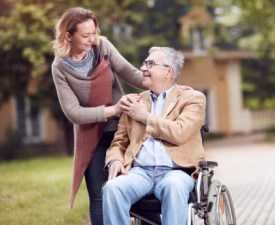Description
Course Name: Diploma in Care giving
Course Id: DCG/Q0001.
Education Qualification: 10th Class.
Duration: 370 Hrs (Equivalent to One Year).
Total Credits: 18.
How You will Get Diploma Certificate:
Step 1- Select your Course for Certification.
Step 2- Click on Enroll Now.
Step 3- Proceed to Enroll Now.
Step 4- Fill Your Billing Details and Proceed to Pay.
Step 5- You Will be Redirected to Payment Gateway, Pay Course and Exam Fee by Following Options.
Card(Debit/Credit), Wallet, Paytm, Net banking, UPI and Google pay.
Step 6- After Payment You will get Study Material Login id and Password on your email id.
Step 7- After Completion of Course Study give Online Examination.
Step 8- After Online Examination you will get Diploma Certificate soft copy(Scan Copy) and Hard Copy(Original With Seal and Sign).
Step 9- After Certification you will receive Prospect Job Opportunities as per your Interest Area.
Online Examination Detail:
- Duration- 120 minutes.
- No. of Questions- 60. (Multiple Choice Questions).
- 10 Questions from each module, each carry 10 marks.
- Maximum Marks- 600, Passing Marks- 40%.
- There is no negative marking in this module.
| How Students will be Graded: | ||
| S.No. | Marks | Grade |
| 1 | 91-100 | O (Outstanding) |
| 2 | 81-90 | A+ (Excellent) |
| 3 | 71-80 | A (Very Good) |
| 4 | 61-70 | B (Good) |
| 5 | 51-60 | C (Average) |
| 6 | 41-50 | P (Pass) |
| 7 | 0-40 | F (Fail) |
Benefits of Certification:
- Government Authorized Assessment Agency Certification.
- Certificate Valid for Lifetime.
- Lifetime Verification of Certificate.
- Free Job Assistance as per your Interest Area.
Diploma in Care giving
Fundamental of Care Giving: Introduction to person-centered care, honoring differences, basic communication, overcoming challenges, the professional caregiver, mandatory reporting and preventing mistreatment, breaking the chain of infection, safely assist with walking and transfers, falls and prevention, body care.
Infection Nutrition & Food Safety: Nutrition, healthy eating, the healthy eating pyramid, healthy eating plate, guidelines of good nutrition, planning, shopping, and preparing meals, safe food handling, foodborne illness, preventing foodborne illness.
Emergencies Falls & Fire Safety: Introduction, fire service primer, fire apparatus access, water supply, premises identification, firefighter access, hazards to firefighters, sprinkler systems, standpipe systems, fire department connection.
Understanding Dementia: Introduction, caregiving tips and techniques, managing daily activities, understanding and managing behaviors, how dementia impacts the family, caring for the caregiver.
Working with Client with Dementia: Introduction, ten tips for communicating with a person with dementia, handling troubling behavior, incontinence, agitation, paranoia, sleeplessness/ sundowning, eating/ nutrition.
Skills in Care Giving: Skill: turn and position a client in bed, skill: mouth/oral care, skill: foot care, skill: assist client with weak arm to dress, skill: put a knee- high stocking on client, skill: assist a client with a bed bath.


Reviews
There are no reviews yet.